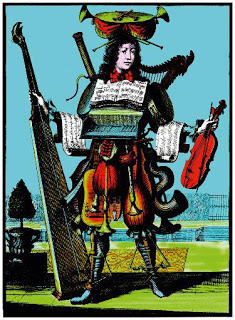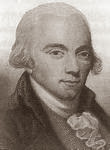
This account of an amazingly talented musician (reminiscent in some of his skills of Percy Edwards) occurs in various forms in trivia collections of the 19th century. This version is from the 20 volume Percy Anecdotes published by Berger in London in 1852.
It is related of a gentleman who resided in London some years ago, that he possessed such extraordinary musical talents, that he could play upon two violins at one time, and imitate the French horn, clario- net, organ, and trumpets, in so astonishing a manner, as to make them appear a whole band, with the sound of different people singing at the same time. The pieces of music which he played were principally from Handel's oratorios. His imitative faculty was not confined to musical instruments. He could imitate a carpenter sawing and planing wood, the mail coach horn, a clap of thunder, a fly buzzing about a window, a flock of sheep with dogs after them, a sky-rocket going off, the tearing of a piece of cloth, the bagpipes, and the hurdy-gurdy. He generally finished his performance with the representation of beating a dog out of the room, which was accounted the most difficult, and, at the same time, the most natural imitation of all.
In The Entertaining Companion (1805) the same story is told with further information. It states the man is 'now living in Tottenham Court Road' and is an 'extraordinary genius in the musical line, a person of independent fortune who has the most wonderful powers of voice of any man in the kingdom yet he is under 5 feet high…' The account concludes -'...what a pity it is, that his abilities were not given to a poor man; for such a one might have made a fortune by them.'

